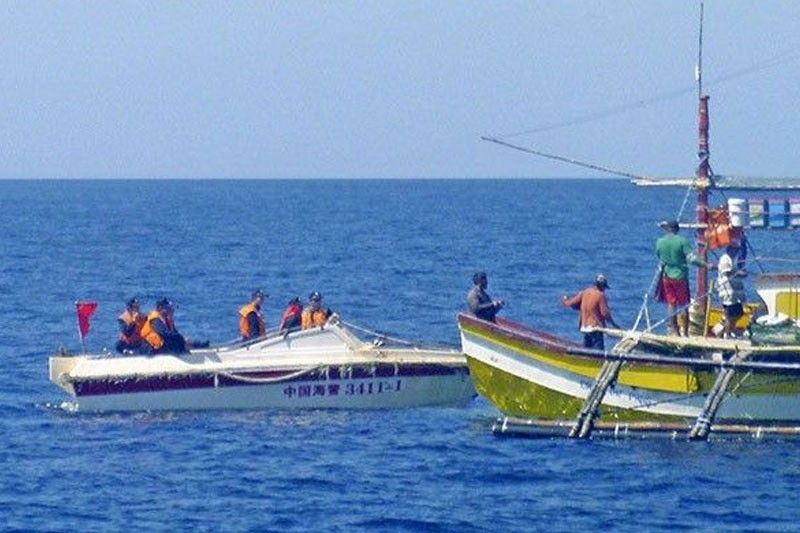FONOPS to counter China in WPS has failed – experts

MANILA, Philippines — The United States’ Freedom of Navigation Operations (FONOPS) in the hotly-disputed West Philippine Sea is a failure, as the approach specifically aimed at countering China’s octopus-like creeping aggression has not altered Beijing from advancing its massive maritime and territorial expansion in the region.
No less than two US maritime security experts – Patrick Cronin, a senior director of the Asia-Pacific Security Program at the Center for a New American Security (CNAS), as well as Hunter Stires, a fellow at the John Hattenford Center for Maritime Historical Research at the US Naval War College and Adjunct Affiliate for Maritime Strategy at CNAS – pointed this out in an August 2018 article for The National Interest magazine posted online.
The two said the present approach of the US to counter China’s continued creeping aggression in the West Philippine Sea, referred to in the article as South
China Sea, has failed.
“The US Navy,” they said, “is not achieving its long-term political objectives of using FONOPS to substantially change China’s revisionist attitudes and belligerent behavior in the region, or to uphold the rule of international law.”
However, this failure is not final, they said, adding that “while cancerous expansion of Chinese terrestrial outposts and coercive maritime presence in the South China Sea is now considerably more advanced from when US FONOPs began.”
“There is still time to retrieve the situation before the regional and international communities either politically recognize China’s ill-gotten gains or capitulate to its continental conception of sovereignty over ocean areas,” the two wrote.
They added that “staging a recovery requires… a new understanding of the core nature of the threat, reexamine… current efforts to discern their effect on the decisive center of gravity and apply learning from…” the US’s “not-too-distant history to craft new strategies and operational concepts that will capture the initiative and more effectively achieve… the just aim of upholding freedom of the sea and the rule of law in the international sphere.”
They noted that China’s multi-pronged strategy to advance in the West Philippine Sea “has taken on the character of an attacking octopus, such that multiple simultaneous and independent lines of effort, capable of being defeated individually, are combined to confuse and overwhelm a defender before they can formulte a coherent response to the aggressor, either in detail or in aggregate.”
“China’s actions in the South China Sea constitute an insurgency, aimed at undercutting the legal authority of the prevailing regime (UNCLOS) by imposing extralegal authority on local civilian mariners, fishermen and airmen through implicit and explicit threats of force,” they wrote.
Time and again, Chinese coast ships and militia vessels have been harrassing Vietnamese and Filipino civilian boats in the Spratlys island chain. Only two weeks ago, a Chinese Coast Guard vessel harassed a civilian ship while delivering provisions to Filipino soldiers guarding Ayungin Shoal aboard a grounded and rusty Philippine Navy vessel, the BRP Sierra Madre.
“The acquiescence of other states to China’s depredations on their lawful rights – whether those depredations be violations of their nation’s recognized Exclusive Economic Zones or restrictions on freedom of navigation and overflight in international waters proximate to newly built Chinese intallations – over time legitimize those depredations, the ultimate outcome of which will be the collapse of the authority of the rightful order,” the two warned.
According to the two experts, in challenging China’s likely push for de jure sea control, the US must behave like a counterinsurgent in the West Philippine Sea.
This could be done by “exercising its influence against the Chinese insurgent through the protection of the far more constant and persistent presence of local civilian craft” in the disputed region.
“If the United States can successfully protect such vessels from Chinese interference in their operations in those areas in the South China Sea, which are within the bounds of international law, and if the United States can successfully regularize such operations as to create a new status quo, then the Chinese would functionally be compelled to respect civilian freedom of navigation and their bid for de jure terrestial-style sovereignty over the South China Sea would be dealt a grievous blow,” the two maritime security experts wrote.
- Latest
- Trending






























